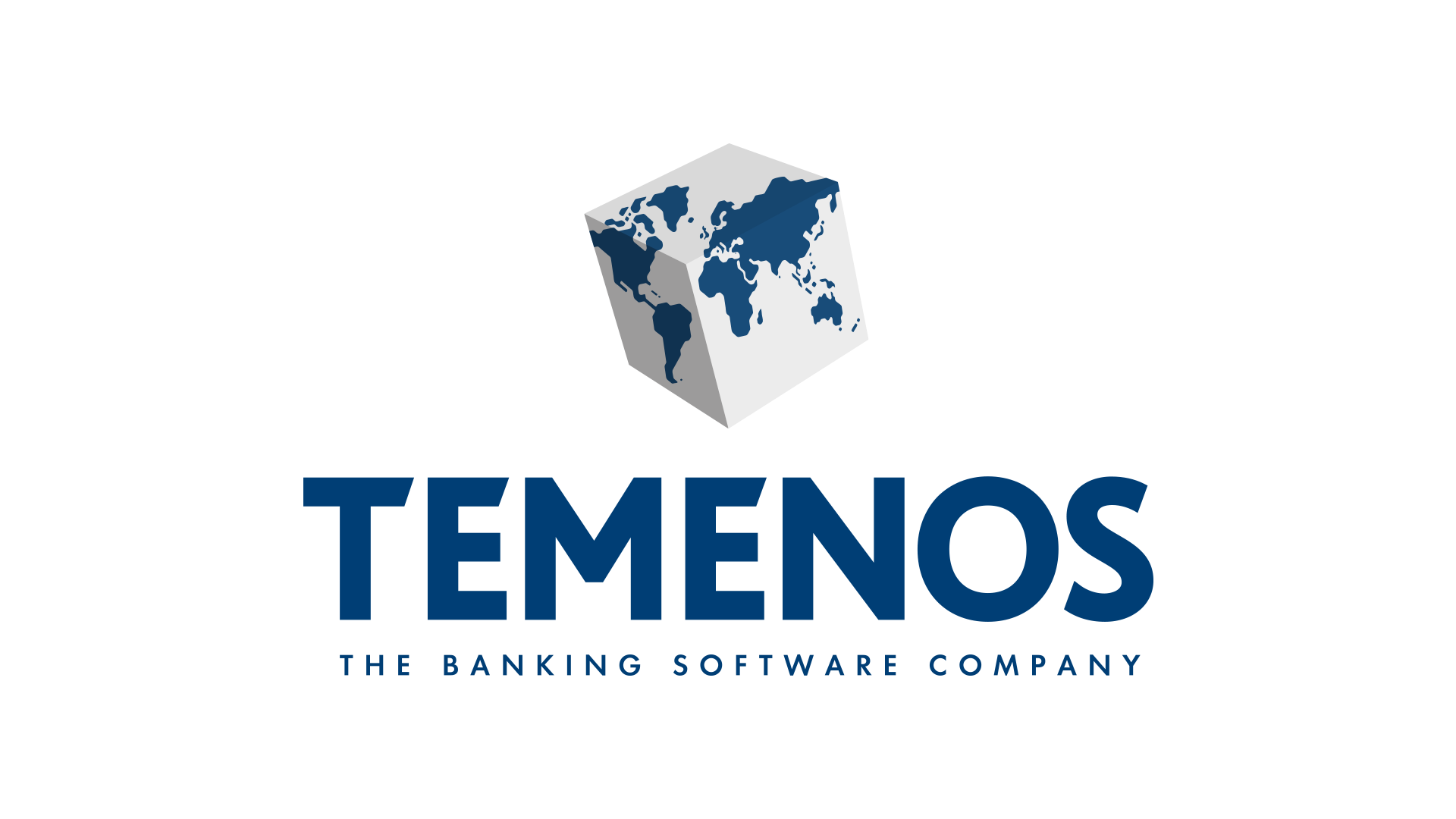Published
- 01:00 am

- New fund is second from Digital Horizon and builds on successful strategy of first fund, which invested in high-growth businesses including Oxygen and Monday.com, generating overall IRR of 40% for its investors.
- This second fund will follow the same multistage strategy and will invest in both early and late stage companies.
- Focus remains on fintech and SaaS products, but with Asian markets targeted as well as Europe and Israel.
Digital Horizon, the venture fund and venture builder investment company, today announces the launch of its second venture fund with a target volume of $200 million.
The first fund, which opened in 2019, is completing the investment stage and has so far returned 40% per annum to investors. Its portfolio contains more than 20 companies including Klarna, team management platform Monday.com, data streaming platform Ably, retail analytics platform Trax and InsureTech companies Cuvva and Obligo.
Digital Horizon’s new fund will retain the successful strategy of its first. This includes:
- A specific focus on the fintech and corporate software sectors. These are some of the fastest growing segments in venture capital. The volume of investments in fintech in Q1 2021 reached $98 billion, twice more than in the same period of 2020. Spending on corporate software, according to Gartner's forecast, in 2022 will grow by $70 billion in 2022 to $699 billion.
Digital Horizon has significant expertise in these sectors. The company has successfully invested in American, Israeli and European startups, and has also built technology businesses from scratch in Russia and the UK
- Unusually for venture capital funds, Digital Horizon will adopt a multi-stage approach and invest in companies at all stages of the startup cycle. This approach has generated high returns over a long period of time with the first fund.
- Digital Horizon is particularly focused on startups founded by passionate immigrant entrepreneurs with a clear vision and strategy. In 70% of Digital Horizon’s startup investments, the founders were building their business not in the country of origin.
“We are delighted to launch our second fund, following an oversubscribed first fund,” said Alan Vaksman, the Founder and Managing Partner of Digital Horizon. “In our first fund we moved away from the traditional venture approach and invested in companies at various stages from Round A to D. Investing in early stage startups can mean double-digit multiples, but this is “long” money, locked in for seven or more years. In later stage investments, the return on investment occurs in just one or two years, but growth slows to an average of 2-4x. A multi-stage fund provides high returns while enabling the investors shorter investment horizon and liquidity. Our new fund will adopt the same approach”.
“As an investment company which combines venture fund and venture builder teams, our team has a unique combination of investment and product building expertise. This allows us to comprehensively evaluate businesses that we are considering adding to the portfolio from both a financial and technical point of view, in a way that others cannot.
“We firmly believe in migratory talents and their abilities to build best-in-class solutions which drive economies forward”, adds Vaksman. “We are extremely proud of the success of our first fund and are confident that our investment strategy will be just as successful going forward.”
Related News
- 07:00 am

Straight through processing capabilities added to Paymode-X Network
Bottomline (NASDAQ: EPAY), a leading provider of financial technology that makes complex business payments simple, smart and secure, today announced that it has completed the acquisition of Bora Payments Systems, enabling Paymode-X vendors to utilize straight through processing (STP) as a method of accepting virtual card payments. The combination adds new bank channel relationships to Paymode-X and capabilities that improve the network’s virtual card program, an important revenue driver for Paymode-X.
Today, most virtual card payments are delivered through encrypted email or via secure portal access. This manual task can become expensive and burdensome as a vendor accepts higher volumes of virtual card payments from their customer base. Virtual card payments made via STP are processed directly to the vendor’s bank account while delivering rich remittance data. That results in savings of both time and effort, as well as reduced card acceptance costs, for vendors with high volumes of virtual card payments.
“For more and more customers and channel partners, the ultimate digital transformation of payables requires a comprehensive strategy for all payments—domestic, international, B2B and B2C,” said Tom Dolan, General Manager, Paymode-X, Bottomline. “Today, however, the card payment piece of the equation can be inefficient and cumbersome. For vendors, these new STP capabilities eliminate manual processing associated with virtual cards, shorten their invoice-to-cash cycle and optimize acceptance economics. For payers, they help improve relationships with suppliers, providing them with more payments acceptance options that offer great efficiency and cost-effectiveness.”
The transaction was structured as an asset purchase for $15 million in cash, and is not expected to have any material impact on Bottomline’s previously issued financial guidance.
Related News
- 04:00 am

72% say moving to the cloud will help their organization achieve its business priorities
In a new survey of IT executives in the banking sector, conducted by The Economist Intelligence Unit and supported by Temenos (SIX: TEMN), more than seven in ten (72%) report that incorporating the cloud into their organization’s products and services will help them to achieve their business priorities. Just under half (47%) say that it will do so “to a great extent”.
Cost is the biggest driver of cloud adoption (43%), followed by the adoption of AI (34%) and improving customer experience (21%). Business agility, elasticity and scalability are together cited by 40% of respondents as top drivers.
The report ‘Capturing value in the cloud’ finds banks have generally been slower to take to cloud computing than other sectors. But the adoption of software as a service (SaaS) and cloud infrastructure has accelerated since the start of the pandemic, as banks seize an opportunity to cut costs and ramp up their digital transformation projects, with 82% of IT executives saying they now have a clear strategy for adopting cloud. This comes as established banks figure out how to use incumbency to fend off fintechs and challenger banks, while the newer entrants use the cloud to advance quickly into new market opportunities.
According to the report, banks are tapping into the cloud to speed up their ability to gain insights from data, and in turn to be able to innovate faster. Yet barriers stand in the way of a wholehearted embrace of the cloud—including security, privacy, compliance and governance concerns. These challenges are leading firms to invest in both technology and talent.
Andrew Reeves, Head of Temenos Cloud, said: “The pandemic has clearly lit a fuse under cloud adoption with banks having to deliver and scale digital services rapidly. However, cloud is also a prerequisite for success in the world of open banking and Banking as a Service. These are megatrends, powered and enabled by the cloud, that are shaping the future of banking.”
Related News
- 08:00 am

Twenty7Tec today announces that it has completed an APPLY integration with Leeds Building Society, enabling users of CloudTwenty7 to seamlessly submit applications to Leeds Building Society without the need for re-keying.
For this integration, Twenty7Tec have integrated with IRESS Lender Connect software, which Leeds Building Society is using to support transfer of data into its intermediary portal. Users of CloudTwenty7 will be able to complete a Leeds Decision in Principle application in the CloudTwenty7 platform, re-using customer data already captured, before passing the data to the Leeds Building Society portal and submitting to the lender.
The integration with Leeds Building Society is now in pilot with Mortgage Advice Bureau and Connells Group, with a wider roll out planned to all CloudTwenty7 users during late 2021.
Nathan Reilly, Director of Lender Relationships at Twenty7Tec commented "Although the market has cooled slightly compared to the unprecedented level of activity we saw earlier in the year, advisers remain incredibly busy so it’s vital technology providers and lenders continue to collaborate in order to drive more efficiency and time saving for advisers.
“It’s been a pleasure working with the team at Leeds Building Society to deliver a seamless mortgage journey that I’m sure will be well received by advisers.”
Martese Carton, Leeds Building Society’s Head of Intermediary Distribution, added: “We are committed to investing in technology and driving innovation that will streamline our mortgage journey and make life easier for everyone, and focusing on our systems that deliver a great service is an essential part of that.
“It’s exciting to be part of this Twenty7Tec integration as we continue to focus on ensuring that working with Leeds Building Society is as straightforward as possible.”
Related News
- 08:00 am

Paymob, Egypt’s pioneer in digital payments, has partnered with Mastercard to launch the Tap-on-Phone digital payment acceptance service in Egypt, the first-of-its-kind in the country.
Egypt has a tech-savvy population, and a smartphone penetration of more than 90%. Tap-on-Phone is a simple, convenient, and cost-effective digital payment technology that meets the needs of small merchants. The solution transforms smartphones and tablets into safe payment acceptance devices for contactless cards, mobile wallets – with no additional equipment or setup-related costs. Businesses can simply download the mobile app and offer their customers a checkout experience that is flexible, seamless, intuitive, and secure.
As Egypt races towards financial inclusion and digital transformation, Paymob is disrupting the field of financial transactions in the market, paving the way for accepting digital payments and reducing the use of cash in the process. Tap-on-Phone is expected to significantly benefit the Egyptian economy, giving SMEs opportunities that redefine the customer experience and meet consumer demands.
“The Central Bank of Egypt (CBE) is a major supporter of such initiatives that comes in line with Egypt’s development plan,” says CEO of Paymob, Islam Shawky, who points out that these initiatives create new opportunities for business owners and allows them to carry out their activities using the latest digital payment technology, pouring into the Egyptian economy. “With the increasing demand from consumers to use modern payment technologies, we are keen on providing the latest financial solutions by cooperating with Mastercard, in addition to a large number of businesses, companies and banks that contribute to accelerating the pace of financial inclusion and achieving Egypt’s Vision 2030.”
Tap-on-Phone is ideal for on-the-go services like couriers and bazaars. Acting as a soft Point-of-Sale (POS) system, the contactless payment solution will allow merchants to collect payments by simply passing the customer’s contactless card over their phones, automatically processing the payment through Paymob’s application.
Related News
- 05:00 am

JUMO, a South Africa- and London-based company that offers financial services to entrepreneurs and businesses in emerging markets, has raised $120 million in a new round of funding led by Fidelity Management & Research Company. The company is now valued at $400 million, according to The Times.
The round, which marks Fidelity’s first investment in an African company, also saw the participation from fintech giant Visa and London-based investment management firm Kingsway Capital. It is also coming a year after raising $55 million in a similar unnamed financing round. In total, JUMO has raised more than $200 million in equity and debt rounds from backers such as Brook Asset Management, Finnfund, Proparco, Leapfrog and Goldman Sachs since founder and CEO Andrew Watkins-Ball launched the company in 2015.
The fintech, which refers to itself as a banking-as-a-service platform, says it uses AI to power financial services, particularly lending in emerging markets where over 1.7 billion people do not have basic access to financial services, 42% of adults in sub-Saharan Africa and Asia are unbanked and only 11% of adults are under credit bureau coverage in Africa. To meet these constraining needs in both markets, JUMO offers core products around savings, credit to customers and businesses, as well as infrastructure to banks, fintech and eMoney operators. Some partners include MTN, Airtel, Tigo, Ecobank, Absa, Letshego, Mansa Bank and Telenor.
When JUMO raised its $52 million in 2018, it opened an office in Singapore to enter Asia, but the company seems to have closed shop there based on information from its statement. Presently, the fintech only states Cape Town, Nairobi, Porto and London as its primary operational and tech hubs. In terms of active operational markets, though, the fintech is present in six African markets — Ghana, Tanzania, Kenya, Uganda, Zambia, Ivory Coast and South Asian country Pakistan.
So far, JUMO has served loans worth over $3.5 billion to more than 18 million customers across these markets, granting up to 120 million individual loans. According to the current number of eMoney subscribers on its platform with access to loans, JUMO says it has an opportunity to disburse $29 billion a year. The company adds that this number can grow to $40 billion when it expands to Nigeria and Cameroon in 2022. The company’s operational costs also strengthen this assertion. JUMO claims to have lowered its costs to $1/customer per year, which gives it some advantage to scale efficiently across a total addressable market of 150 million customers.
Fidelity participation in JUMO’s round continues a growing list of first-time US investors who have made their first checks in African tech this year, especially fintech. Avenir Growth Capital’s co-lead round in Flutterwave and SoftBank’s backing of Opay come to mind.
“It’s exciting to be part of the wave of US capital being invested in payments and fintech on the continent – there are some great businesses being built and we are proud to play a role supporting capital providers to reach customers with great products,” said Watkins-Ball in a statement.
The founder says JUMO is focused on making it easier for capital providers to reach new customers at affordable prices. The six-year-old company also wants to help banks make “predictable returns” by providing a full range of infrastructure and services from core banking to underwriting, KYC (know your customer) and fraud detection services.
Since 2019, the total bank capital and assets under management deployed on JUMO’s platform has increased to 160%, which signifies the platform’s importance to these financial institutions.
Asides from the expansion into Nigeria and Cameroon, JUMO says it will use the investment to improve and increase the number of financial products it offers to small and medium businesses. It also plans to provide longer-term lending options for merchants and bigger businesses.
“JUMO’s lending platform is highly attractive in its ability to scale across markets and drive financial inclusion by creating access to credit for consumers and small businesses,” said Melissa McSherry, the global head of Risk and Identity Services at Visa in a statement. “We are excited about our investment in JUMO and are looking forward to accelerating adoption of JUMO’s platform across markets and delivering on Visa’s mission of helping individuals, businesses, and economies to thrive.”
Related News
- 09:00 am

Today, fintech company Bitfrost has announced that Anton Chashchin will take on the role of Managing Partner to spearhead the firm’s international growth.
Anton Chashchin will lead Bitfrost’s strategic growth trajectory across all business areas as the firm expands its operations in Switzerland, the EU, Gibraltar, and Singapore.
The appointment follows the firm’s acquisition of OKONTO, where, as Chief Business Development Officer, Chashchin played an integral role in the firm’s evolution as a premium provider of institutional digital asset services.
His experience offers a unique approach to fintech services, bringing invaluable expertise and strong relations with institutional clients.
With over 10 years of experience in digital markets, Chashchin brings invaluable strategic business development expertise and strong relations with institutional clients to the new role. Having served as Managing Partner at CEX.IO Prime prior to the CBDO role, Chashchin also brings deep knowledge of building crypto infrastructure and the wider digital asset industry.
“I’m excited to be able to contribute to the development and future of the fintech industry as Managing Partner of Bitfrost. As the sector continues to evolve rapidly, the unlimited potential of digital assets in addition to traditional ones will only improve the quality and broadening of the financial services industry.” says Chashchin.
Over the next few months, Bitfrost plans to integrate its systems with the OKONTO digital assets platform. The integration will significantly increase Bitfrost’s ability to offer clients a highly profitable, innovative environment for the varied use of digital assets alongside the high-speed processing of transactions across institutional-grade infrastructure and products.
Related News
- 01:00 am

GreenBox POS, an emerging fintech company that leverages proprietary blockchain security and token technology to create customized payment solutions, today announced the closing of its previously announced $100 million convertible note financing ($84 million following the deduction of an original issue discount).
The Company plans to use proceeds for acquisitions, to jumpstart the Coyni stablecoin custodial revolver and apply additional working capital toward the Company’s future growth, this is a significant milestone in executing the Company’s growth plans.
“This financing round not only fuels the next stage of progress for GreenBox and our planned stablecoin spin-off, Coyni, but also demonstrates our organization’s focus on executing against lofty goals,” said Ben Errez, GreenBox POS Chairman. The world of financial payments is ripe for disruption largely based on legacy architecture and painstaking processes for businesses to transact. Now with a fortified balance sheet, GreenBox is one crucial step closer to achieving our long-term vision of becoming the financial infrastructure for the new blockchain based future of banking and operating as a point-of-sale, PayFac, card issuance, and full banking platform around the world.”
The note will mature 24 months from the closing date. The initial conversion price equal to an over 80% premium to the market price of the Company’s common stock on October 29th, 2021 sets enterprise value at over $700 million upon conversion.
EF Hutton, division of Benchmark Investments, LLC, acted as the exclusive placement agent for the offering.
The securities were offered pursuant to an effective shelf registration statement on Form S-3 (File No. 333-257798) that GreenBox previously filed with the U.S. Securities and Exchange Commission (“SEC”). The offering will be made only by means of a written prospectus supplement and the accompanying prospectus that form a part of the registration statement. An electronic prospectus supplement and the accompanying prospectus relating to the offering will be filed with the SEC. Copies of the prospectus supplement and the accompanying base prospectus relating to these securities will be available on the SEC’s website at www.sec.gov and may also be obtained, when available, by contacting EF Hutton, division of Benchmark Investments, LLC, 590 Madison Avenue, 39th Floor, New York, NY 10022, Attention: Syndicate Department, or via email at syndicate@efhuttongroup.com or telephone at (212) 404-7002.
This press release shall not constitute an offer to sell or the solicitation of an offer to buy any of the securities described herein, nor shall there be any sale of these securities in any state or jurisdiction in which such offer, solicitation or sale would be unlawful prior to registration or qualification under the securities laws of any such state or jurisdiction.
Related News
- 08:00 am

Fusion Risk Management, Inc. (“Fusion”), a leading provider of operational resilience, business continuity, and risk management software and services, today announced it has been named the Best Vendor Solution for Managing Operational Risk in the inaugural RegTech Insight Awards APAC 2021.
Fusion’s recognition was driven largely by product innovation of the Fusion Framework® System™, a revolutionary platform that simplifies organizational risk and resilience assessment, eliminating the need for separate modules across multiple business areas. The platform integrates all aspects of operational resilience including risk management, cybersecurity, IT disaster recovery, crisis management, business continuity, and third-party management holistically to help organizations deliver on their brand promise, no matter the disruption. Fusion’s out-of-the-box capabilities empower firms to efficiently aggregate risk assessment information for accurate risk reporting and control monitoring across the organization, building a culture of resilience as a guiding North Star and enabling clients to go beyond reacting to ongoing threats to more proactively managing their resilience posture.
Throughout the year Fusion has continued to invest in enhancements to the platform, including the addition of Scenario Testing – a new purpose-built engine that provides organizations with the ability to model and test for severe and plausible events in real-time. Fusion recently announced the launch of Dynamic Response Console, an agile solution that streamlines response and recovery with a data-driven approach. Earlier this year, Fusion launched Fusion Analytics which provides diagnostic, prescriptive, predictive, and actionable insight for risk teams.
“Fusion is honored to be named Best Vendor Solution for Managing Operational Risk by the RegTech Insight Awards APAC 2021,” said Michael Campbell, CEO of Fusion Risk Management. “This award recognizes our commitment to delivering best in class operational resilience solutions that help our clients deliver on their brand promise through any disruption or unexpected event. The last 18 months have clearly displayed the critical importance of operational resilience and risk management planning, and we are excited to continue innovating and working in close partnership with our global clients to ensure a more resilient future.”
The RegTech Insight Awards APAC 2021 are evaluated by an esteemed Advisory Board and then voted on by A-Team’s broad readership including financial institution members, senior technology officers and RegTech specialists.
“Many congratulations to Fusion Risk Management for winning Best Vendor Solution for Managing Operational Risk in our inaugural RegTech Insight Awards APAC 2021. It’s a real vote of confidence from across our readership of 30,000+ senior technology officers and RegTech specialists, who selected Fusion Risk Management as the clear winner in a very competitive field,” said Andrew Delaney, President and Chief Content Officer of A-Team Group, which hosts the RegTech Insight Awards.
Related News
- 04:00 am

Cabital, a leading digital assets institution, today announced that it has partnered with BCB Group (BCB), one of Europe’s leading provider of business accounts and trading services for the digital asset economy, enabling it to incorporate GBP to its growing list of payment methods.
Cabital’s partnership with BCB allows it to serve any customer who holds GBP as the rate of cryptocurrency adoption increases across Europe. The partnership with BCB allows users to exchange GBP for crypto assets and vice versa. Customers who convert their digital assets into GBP can easily transfer it to a bank account held in their name.
Raymond Hsu, Co-Founder & CEO of Cabital said:
“Cabital’s partnership with BCB allows people who hold GBP to buy crypto assets and enjoy high-yield passive income through our interest-bearing crypto asset deposit products on Cabital Earn. This will provide our customers who hold GBP with more opportunities to generate higher returns in an exciting and quickly growing asset class.
“As we further execute our strategic ambitions, we will continue seeking secure and efficient strategic partnerships that will allow our customers to easily and safely invest in cryptocurrency and generate high-yield passive income from their digital assets no matter what fiat currency they hold. Looking ahead, we plan on adding more fiat currencies to Cabital’s crypto rails in 2022.
“I am confident that the continued execution of our strategic priorities will create long-term sustainable value for our shareholders and customers.”
Oliver von Landsberg-Sadie, Founder and CEO of BCB Group, added:
”We’re delighted to be working with Cabital, and helping them with payments infrastructure to allow them to incorporate GBP into their offering.”
Last month, Cabital announced that it has added the European Union’s Single Euro Payments Area (SEPA) to its growing list of payment methods, enabling customers to seamlessly change between euros and cryptocurrencies to generate high-yield passive income.
The SEPA announcement came after Cabital’s recently successful $4 million seed round that was led by SIG, Dragonfly, and GSR, increasing the company’s valuation to $40 million. That followed Cabital’s previously successful angel round where the company raised $3 million.









